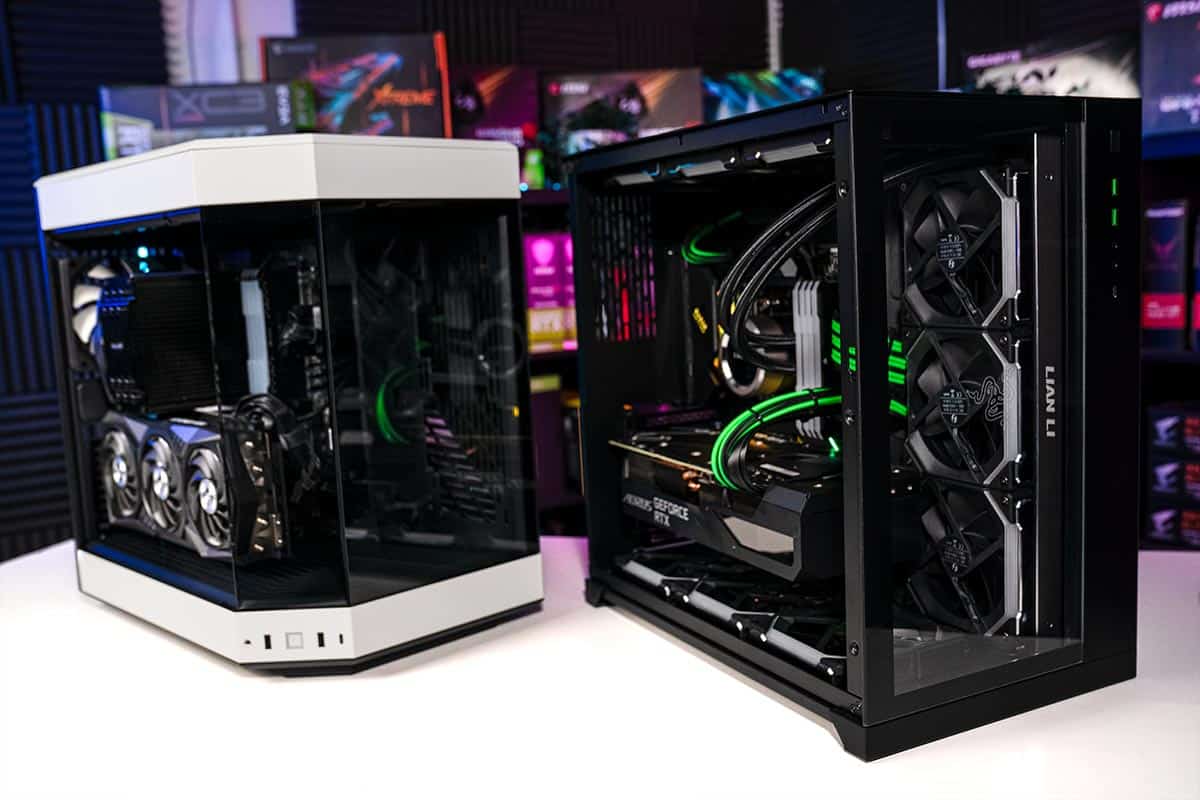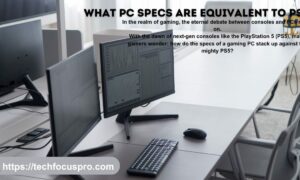The classic dilemma that many gaming PC constructors and beginners still face today is whether to make or buy a custom gaming computer. With an overwhelming number of vendors out there all with their own list of strengths and weaknesses, tackling the decision becomes very challenging. Whether it’s the spirit of building a furnace from scratch or the convenience of buying a pre-built system, both options provide specific benefits and challenges. In this article, we will explore the different aspects of whether you should make or purchase a custom gamer PC; that is, what you need to have in mind to help you arrive at the best decision that suits your needs and wallet.
- Buying a custom PC
Pros
Buying a custom gaming PC saves the time you would have spent searching for the different components and trying to fit them all together. It is sufficient to just opt for a pre-established system that meets your expectations.
Pre-built gaming PCs are assembled and installed by experts who make sure that all components are correctly installed and the system is fine-tuned for peak performance.
The majority of pre-constructed gaming PCs are usually covered by warranties that include parts and labor, offering security to the owner in case of hardware failure or defect.
Several manufacturers offer technical assistance and customer services for troubleshooting, setup, and issues that might crop up after purchase.
The prebuilt gaming computers go through rigorous testing to ascertain that all the components are compatible and they work harmoniously, thus reducing the chances of compatibility concerns.
Some retailers offer combined subscriptions or discounts with pre-constructed gaming PCs, such as monitors, keyboards, and mice. Such a combination is usually cheaper than buying the components separately.
Cons
Customizing gaming PCs beforehand offers fewer options than building your own system. You may be restricted to using particular brands or models of components, which can impede your desire to customize the system to your preference.
The price of pre-built gaming PCs is typically higher than the cost of homemade systems because assemblers add a markup for basic assembly, testing, and warranty services.
Some prebuilt gaming PCs have preinstalled software or bloatare that can reduce system performance or loosen the gaming experience. Disabling or even removing this software is likely to require more effort without additional instructions.
Ready-made gaming PCs may not have the flexibility to upgrade them as much as custom personal computers. Certain parts may even be exclusive or tricky to procure, which could curtail future upgrades of the individual parts.
Custom PC building service manufacturers may opt for cost savings over component quality, thus providing components of inferior quality or unreliability unless you build your own system that way.
- Building a custom PC
Pros
Custom gaming PC building is an advantage that allows you to select each component in line with your own personal preferences and needs. From the processor and graphics card to the case and cooling system, all of it is in your hands and you can go exactly according to your budget and taste.
By choosing the best parts and the best settings, you may have better performance than buying a built-in gaming PC for the same price. With this flexibility, you can accordingly match the PC to your gaming requirements.
Having your own PC gives you the freedom to adjust the internal specs, allowing for future upgrades as needed. You can effortlessly get rid of particular components as newer, more powerful hardware becomes available, increasing the lifespan and performance of your gaming hardware.
By picking components via performance-to-price ratios and outright ignoring some of the features that you don’t really need, you can put up a high-performance gaming computer within your budget.
Building a PC from scratch provides valuable hands-on experience and knowledge about computer hardware, assembly, and troubleshooting, which can be a rewarding and educational proces.
Cons
Assembling a custom gaming PC requires research, planning, and skill. This process is time-consuming, mainly for beginners or people who are not talented at working with computers hardware. Furthermore, fixing problems during the construction can lengthen the involved time and effort.
It is not enough to have computer hardware and software skills to build a PC. You also need to understand the components’ compatibility. Selecting a set of compatible components, installing them precisely, and dealing with any problems that come up can be difficult for those with a lack of technical expertise or experience.
Contrary to custom PCs, components acquired separately for custom builds will have varying warranty conditions and support policies. Resolution of warranty claims and customer support may become more complicated when such problems arise.
The risk of destroying any components always exists during the process of putting it together. Avoiding mishandling fragile equipment, applying undue force during installation, and committing mistakes in wiring will result in damage to the devices or device malfunction.
Making sure that the various components are compatible can be difficult. Picking parts that complement each other and avoid incompatibility problems involves thorough research and consideration.
Conclusion
In the end, the decision on either building or buying a gaming PC will depend on personal taste, proficiency in technical issues, and money available. While self-building is the one that can offer greater mechanical flexibility, uniqueness, and potential savings, it does need previous technical knowledge and time commitment. However, all-in-one gaming PCs are often an option for when one needs convenience as well as warranty support and professional assembly, only they may end up being more expensive and less upgradeable. At the end of the day, you must decide whether to build or buy a custom gaming PC, but the deciding factor you should be looking for is to have components that fulfill your gaming needs and budget matters.



































